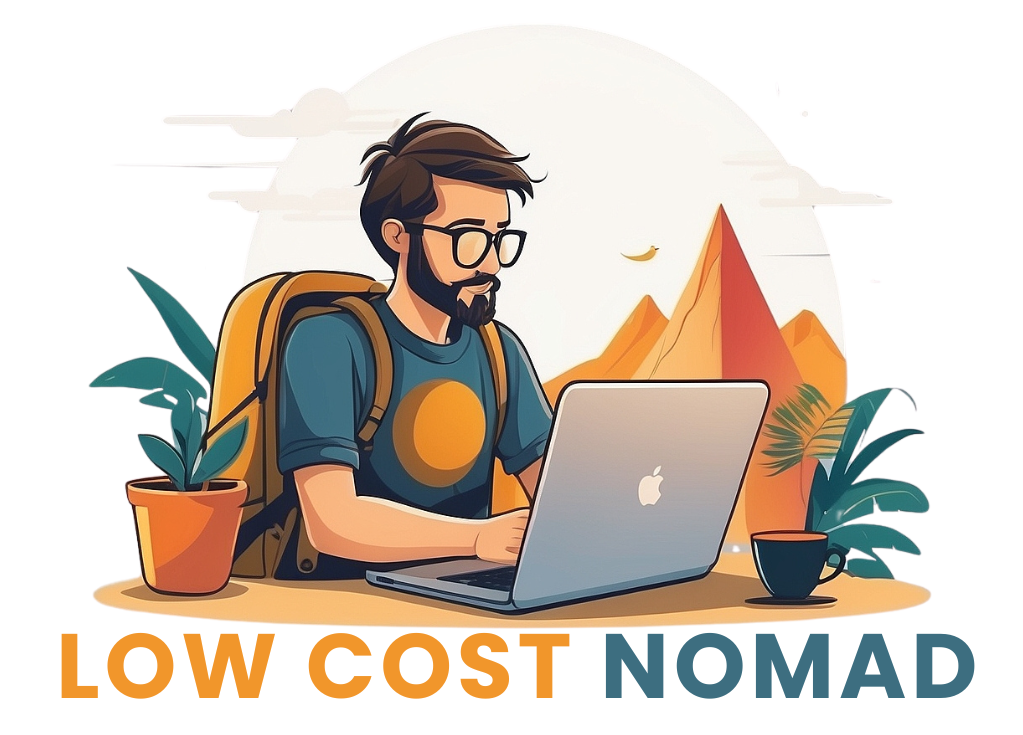Where Digital Nomad Visa: Your Guide to Working Remotely From Around the World
Have you ever dreamed of working from a beach in Mexico, a cafe in Portugal, or a mountain view apartment in Georgia? The idea of being a “digital nomad” — someone who uses technology to work from anywhere — sounds amazing, right? For a long time, doing this legally for more than just a short tourist visit was tricky. You often had to leave after a few months or try to get a complicated work permit.
But things are changing! More and more countries are realizing how cool and beneficial digital nomads can be. They spend money locally, bring new ideas, and don’t take jobs away from local people because their work is often for companies back home or clients worldwide. So, many countries have started offering a special type of permission to stay longer: the digital nomad visa.
This article is all about that: the where digital nomad visa question. We’ll explore what these visas are, why countries offer them, what you generally need to get one, and most importantly, which countries you can go to with this special visa. If you’re dreaming of a life where your office is the world, keep reading!
What Exactly Is a Digital Nomad Visa?
Think of a digital nomad visa as a golden ticket for remote workers. It’s not a tourist visa, which only lets you visit for a short time (usually 30 to 90 days) and definitely doesn’t allow you to work while you’re there (even for a foreign company). It’s also not a traditional work visa, which usually requires a specific job offer from a local company in the country you want to move to.
A digital nomad visa is specifically designed for people who work online, usually for clients or employers located outside the country they want to live in. It gives you the legal right to stay for a longer period — typically one or two years, often with the possibility to renew. This means you don’t have to worry about visa runs (leaving and coming back just to reset a tourist visa) and can settle into a place, explore it properly, and become part of the local community for a while.
These visas understand the modern way of working. They recognize that your laptop is your office and the internet is your connection to your job. Getting a digital nomad visa allows you to enjoy the benefits of living abroad without the hurdles of traditional immigration paths.
Why Are Countries Offering Digital Nomad Visas?
It might seem strange — why would a country make it easier for foreigners to live there without taking a local job? Well, countries aren’t just being nice; there are real benefits for them:
- Boosting the Economy: Digital nomads spend money on rent, food, entertainment, local services, and more. This injects cash into the local economy.
- Filling Empty Spaces: Especially after events like the global pandemic, many cities and towns had empty apartments and hotels. Digital nomads help fill these up.
- Attracting Talent and Ideas: Nomads bring diverse skills, experiences, and perspectives. They can connect with local entrepreneurs and contribute to the creative scene.
- Diversifying Tourism: Nomads often travel during the off-season and stay longer than typical tourists, providing a more stable source of income for businesses.
- Being Modern and Competitive: Offering a digital nomad visa shows a country is forward-thinking and wants to attract the new wave of remote workers. It’s become a way for countries to compete on the global stage for desirable residents.
So, it’s a win-win! Nomads get to live and work legally in cool new places, and countries get economic and social benefits.
What Do You Generally Need for a Digital Nomad Visa?
While the specific rules change from country to country (that’s why we need to talk about where digital nomad visa options are!), there are common requirements you’ll see almost everywhere:
- Proof of Remote Work: This is the most important part. You need to show you have a job that lets you work remotely, or you run a business that serves clients outside the country. This could be employment contracts, client agreements, or business registration papers.
- Minimum Income: Countries want to know you can support yourself without taking local jobs or needing social help. They set a minimum monthly or yearly income you must prove you earn. This amount varies a lot — from around $1,500 USD per month in some places to $3,000 – $5,000+ USD per month in others. You’ll usually need to show bank statements or tax returns.
- Health Insurance: You must prove you have health insurance that covers you in the country you’re moving to. This is crucial so you don’t become a burden on their healthcare system.
- Clean Background Check: Most countries will ask for a criminal record check to make sure you don’t have a serious criminal history.
- Valid Passport: Your passport needs to be valid for the entire time you plan to stay, and often for several months beyond your planned departure.
- Accommodation Proof: Some countries might ask for proof of where you plan to stay, at least for the initial period (like a hotel booking or rental agreement).
- Application Fee: There is always a fee to apply for any visa, and digital nomad visas are no different.
These are the basics. Some countries might have extra steps, like an interview, proving you have enough savings in addition to income, or even a minimum age requirement. Always check the *official* government website for the specific country you’re interested in.
Where to Get a Digital Nomad Visa: Exploring the Options Around the World
Okay, the exciting part! The list of countries offering digital nomad visas is growing all the time. Here are some of the most popular and well-known options for getting a digital nomad visa:
Portugal Digital Nomad Visa
Portugal was one of the early pioneers and remains a top choice. It offers a “D8 Visa” specifically for digital nomads and remote workers. Portugal is loved for its beautiful cities (Lisbon, Porto), lovely beaches, rich history, friendly people, and relatively affordable cost of living compared to many other Western European countries. The weather is great, and there’s a large, welcoming community of expats and nomads.
Requirements often include: Proof of remote work or income from outside Portugal, and a minimum monthly income (this amount has increased and is linked to Portugal’s minimum wage, so check the latest figure — it’s usually around 4x the national minimum wage). You also need health insurance and a background check.
Spain Digital Nomad Visa
Spain launched its visa relatively recently and it’s been very popular. Who wouldn’t want to live in Spain? Amazing food, vibrant culture, diverse landscapes (from sunny coasts to snowy mountains), and lively cities like Barcelona, Madrid, and Valencia. The visa allows non-EU citizens who work remotely for companies outside Spain to live there for up to a year, with the possibility to renew.
Requirements often include: Proof of remote employment for a company outside Spain for at least a year, or proof of running a remote business. You need to meet an income threshold (often around twice the national minimum wage, so check the current number), have health insurance, and a clean criminal record.
Italy Digital Nomad Visa (Coming Soon/Recently Launched)
Italy, with its incredible history, art, food, and stunning scenery, is a dream for many. While it took a little longer than some neighbors, Italy has approved its own digital nomad visa. This is big news! It aims to attract high-skilled remote workers. While details were finalized, the potential for living la dolce vita while working online is huge.
Requirements expected to include: High minimum income compared to some other countries, proof of highly qualified remote work, health insurance, and potentially a clean criminal record. Keep an eye on official sources for the exact launch date and detailed requirements, as these were being confirmed.
Greece Digital Nomad Visa
Imagine working with views of the Aegean Sea or from a charming village cafe. Greece offers a digital nomad visa allowing non-EU citizens to live there for up to a year, with the option to extend for another year. Greece offers beautiful islands, ancient history, delicious food, and a lower cost of living than many Western European countries.
Requirements often include: Proof of working remotely for a company or clients outside of Greece, and a minimum monthly income (check the latest figure — it’s generally set to ensure you can comfortably support yourself). You need health insurance and a clean criminal record.
Croatia Digital Nomad Visa
Croatia was one of the first European countries to launch a specific permit for digital nomads. While technically not a “visa” but a “temporary stay permit,” it serves the same purpose, allowing non-EU citizens to stay for up to a year. Croatia is famous for its gorgeous coastline, islands (like Hvar and Korčula), national parks, and historic cities like Dubrovnik and Split. It offers a great mix of natural beauty and culture.
Requirements often include: Proof of working remotely for a company or clients outside Croatia, proof of sufficient funds (there’s a specific calculation based on the average Croatian wage), health insurance, and a clean background check. You cannot work for Croatian companies while on this permit.
Estonia Digital Nomad Visa
Estonia is a tech-savvy country in Northern Europe, often called ‘e-Estonia’ because so much of life is digital. They were one of the pioneers of the digital nomad visa, called the “Digital Nomad Visa (D-visa)”. It allows you to stay for up to a year and is known for its straightforward application process (because everything is digital!). Estonia is less about warm beaches and more about cool tech, forests, and a unique culture.
Requirements often include: Proof of working remotely for a company or clients outside Estonia or running a business registered outside Estonia. There’s a specific minimum monthly income requirement you must meet and prove with bank statements. You also need health insurance and a clean record.
Georgia (Country) Remotely From Georgia Program
The country of Georgia (not the US state!) in the Caucasus region has a program called “Remotely From Georgia.” While technically not a visa (many nationalities can enter Georgia visa-free for a year anyway), this program is for longer stays (over 6 months) for remote workers and provides a legal framework. Georgia offers stunning mountain landscapes, ancient cities (like Tbilisi and Batumi), amazing food and wine, and a very affordable cost of living.
Requirements often include: Proof of remote employment or business, a minimum monthly income requirement (relatively low compared to Europe), health insurance, and agreeing to their terms. It’s one of the easier options for longer stays for many nationalities.
Mexico Digital Nomad Visa (Temporary Resident Visa)
Mexico doesn’t have a visa specifically *named* “digital nomad visa,” but its Temporary Resident Visa works perfectly for remote workers. It allows you to stay for one year, renewable for up to three more years. Mexico is incredibly popular with nomads due to its vibrant culture, diverse climates (from beaches to mountains to deserts), delicious food, friendly people, and very reasonable cost of living in many areas (like Mexico City, Playa del Carmen, Oaxaca).
Requirements often include: Proof of sufficient monthly income or significant savings. The income requirement is based on the minimum wage but is usually around $1,600 – $2,000 USD per month (check current rates) or having substantial savings (e.g., $27,000 – $35,000 USD). You apply at a Mexican consulate outside of Mexico.
Costa Rica Digital Nomad Visa
Pura Vida! Costa Rica, famous for its rainforests, wildlife, volcanoes, and beautiful beaches on both the Pacific and Caribbean coasts, launched its digital nomad visa. It allows remote workers to stay for up to a year, renewable for another year. It’s a great option for nature lovers and adventurers.
Requirements often include: Proof of stable monthly income from a source outside Costa Rica (the requirement is usually around $3,000 USD per month, or $4,000 USD if applying with family), proof of health insurance, and a clean background check. You cannot work for Costa Rican companies.
Colombia Digital Nomad Visa
Colombia is a rising star in the digital nomad world, known for its lively cities (Medellín, Bogotá, Cartagena), beautiful landscapes (coffee regions, Caribbean coast, mountains), rich culture, and friendly locals. Colombia recently introduced its own digital nomad visa, allowing remote workers to stay for up to two years.
Requirements often include: Proof of income from a foreign source (often around $600 – $700 USD per month or more, check the latest figure which is based on minimum wage), proof of health insurance covering Colombia, and a clean criminal record. It’s one of the more affordable income requirements.
Other Countries Offering Digital Nomad Visas or Similar Options:
The list keeps growing! Other countries that have launched or are planning digital nomad visa programs include:
- Malta: Offers the Nomad Residence Permit.
- Cyprus: Offers a Digital Nomad Permit.
- Germany: Has a freelance visa that works for some nomads.
- Czech Republic: Has a long-term visa for freelancers (Zivno visa).
- Iceland: Offers a long-term visa for remote workers with high income.
- Norway: Has a visa for independent contractors with a client in Norway (high income needed).
- United Arab Emirates (Dubai): Offers a Virtual Working Programme permit.
- Mauritius: Offers a Premium Visa suitable for nomads.
- Indonesia (Bali – Planned): A specific nomad visa for Bali has been discussed and is anticipated, though traditional visas or extensions are used currently.
- Thailand: Recently launched a Long-Term Resident (LTR) visa category that includes “highly-skilled professionals” which can apply to remote workers, but it has a high income/asset requirement.
- Brazil: Has a specific visa for digital nomads.
- Ecuador: Offers a digital nomad visa.
- Panama: Has a Short-Stay Visa for Remote Workers/Digital Nomads.
As you can see, the options for where digital nomad visa paths exist are expanding rapidly! It’s worth doing current research as new countries join the list.
Comparing Different Digital Nomad Visa Destinations
With so many choices for where digital nomad visa options are available, how do you pick the right one? Here are some things to think about:
- Income Requirements: Do you meet the minimum income level? This is often the biggest hurdle. Some countries are much more affordable than others.
- Cost of Living: How much does it cost to rent an apartment, buy food, and generally live in that country? Countries like Georgia, Mexico, and Colombia are generally cheaper than Portugal, Spain, or Italy, which are in turn cheaper than places like Norway or Iceland.
- Visa Length and Renewal: How long can you stay initially? Can you renew it easily?
- Application Process: How complex or simple is it? Can you apply online, or do you need to visit an embassy or consulate? How long does it take?
- Time Zone: Does the time zone work with your job or clients?
- Culture and Language: Are you comfortable in a place where you don’t speak the local language? How different is the culture from what you’re used to?
- Internet Speed and Infrastructure: Is the internet reliable and fast enough for your work? Are there co-working spaces?
- Healthcare System: How good is the healthcare, even with insurance?
- Community: Is there already a community of digital nomads or expats that you can connect with?
- Taxes: How will getting this visa affect your tax situation? This is a complex topic and often requires professional advice, but many nomad visas have rules about not taxing your foreign income if you don’t stay too long or meet certain conditions.
Thinking about these factors will help you narrow down the list of where digital nomad visa options fit your personal and work needs best.
Pros and Cons of Getting a Digital Nomad Visa
Like anything, there are good points and not-so-good points about getting a digital nomad visa:
Pros:
- Legal Stay: The biggest benefit! You can live and work in a country for an extended period without breaking any immigration rules.
- Peace of Mind: No stress about overstaying a tourist visa or having issues at the border.
- Access to Services: Sometimes makes it easier to open bank accounts, get a local phone number, or rent property long-term.
- Integration: Allows you to stay long enough to really get to know a place, learn some of the language, and make local friends.
- Potential Tax Benefits: Some visas offer temporary tax exemption on foreign income, though you must understand the rules carefully.
- Easier Travel: Having a long-term visa in one country (especially in places like the Schengen Area in Europe) can sometimes make travel to nearby countries easier, though this varies.
Cons:
- Income Requirements: The minimum income can be a barrier for some.
- Application Process: It can be complex, time-consuming, and require a lot of paperwork.
- Cost: Application fees, getting documents translated/apostilled, and potentially needing legal help can add up.
- Not a Path to Permanent Residency (Usually): Most digital nomad visas are temporary. They don’t automatically lead to permanent residency or citizenship, although some countries might allow you to switch visa types later.
- Tax Confusion: Even with potential benefits, understanding your tax obligations both in your home country and the new country is complicated.
- Requires Commitment: Applying means you plan to stay for a significant period, which requires commitment to a location.
Tips for Applying for a Digital Nomad Visa
If you decide a digital nomad visa is right for you, here are some tips to help with the process:
- Do Your Research: Rules change! Look at the official government websites for the specific country you’re interested in. Don’t just rely on blogs (like this one!) for the absolute latest details, although blogs can be a great starting point.
- Check the Specific Requirements: Pay close attention to the exact income amount, what counts as proof of income, the health insurance requirements, and any needed background checks or apostilled documents.
- Gather Documents Early: Collecting all the necessary papers — bank statements, employment letters, contracts, criminal checks, insurance details — can take time. Start early!
- Meet the Income Threshold Clearly: Make sure your income consistently meets or exceeds the requirement for several months before applying.
- Get Proper Health Insurance: Find an international health insurance plan that specifically covers you in the country you are applying for.
- Be Patient: Visa processes can take weeks or even months. Apply well in advance of when you want to move.
- Consider Professional Help: For some countries, hiring a local immigration lawyer or relocation agency familiar with the digital nomad visa process can be very helpful, especially if the rules are complex or language is a barrier.
- Understand Tax Implications: Before you go, try to get a basic understanding of how living abroad might affect your taxes both at home and in the new country.
The Future of Digital Nomad Visas
The trend is clear: more and more countries are recognizing the value of remote workers and creating official paths for them to stay. We can expect the list of where digital nomad visa options are available to continue growing. The requirements might also evolve as countries learn what works best. This is an exciting time for anyone who dreams of combining work and travel, making it more accessible and legal than ever before.
Conclusion: Your Next Adventure Awaits!
Living and working from different countries is no longer just a dream for a few adventurous souls. With the rise of the internet and flexible work, and the introduction of specific visas for remote workers, it’s becoming a realistic option for many more people. Understanding the question of where digital nomad visa opportunities exist is the first big step in planning your adventure.
We’ve seen that countries all over the world, from sunny Portugal and Mexico to techy Estonia and cultural Colombia, are rolling out the welcome mat with their own versions of the digital nomad visa. Each country offers a unique experience and has its own set of requirements, especially regarding income.
If you meet the general criteria — working remotely, having enough income, and being willing to navigate the application process — then a digital nomad visa could be your key to living abroad legally and comfortably for an extended period. Do your research, pick a country that excites you and fits your needs, gather your documents, and take the leap.
The world is opening up for remote workers. Where will your digital nomad journey take you?




